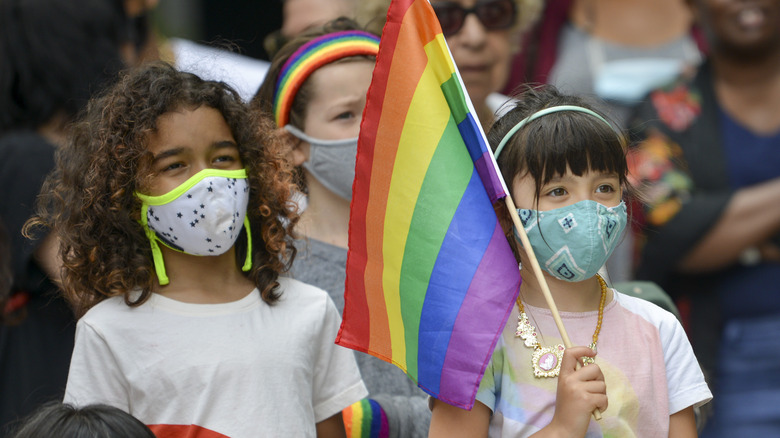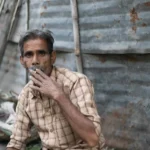Despite a seemingly increased public awareness of LGBTQ issues, the mental and physical well-being of LGBTQ youth often remains under attack. Due to this compromised safety, more LGBTQ people are at high risk of experiencing mental health issues, according to the Annual Review of Clinical Psychology. A new research brief from the nonprofit The Trevor Project sheds light on how trauma symptoms in LGTBQ youth might increase their risk of suicide.
While there’s a need for more research on trauma and suicide in LGBTQ youth, previous studies have shown that LGBTQ youth consistently report higher levels of trauma, due to things like discrimination and victimization (via The Trevor Project). Trauma at the individual level happens when a person feels physically or emotionally harmed or threatened in a way that has a lasting effect on their well-being.
Poor societal treatment, which includes perceived discrimination and microaggressions, is common in the LGBTQ population and is associated with trauma. Studies have shown that LGBTQ youth experience trauma-related events at much higher rates than their straight, cisgender peers — and this is creating disastrous consequences.
If you or someone you know needs help with mental health, please contact the Crisis Text Line by texting HOME to 741741, call the National Alliance on Mental Illness helpline at 1-800-950-NAMI (6264), or visit the National Institute of Mental Health website.
The connection between trauma and suicide

In this new research brief, The Trevor Project used data from their 2024 National Survey on LGBTQ Youth Mental Health to explore the disparities in trauma symptoms in LGBTQ youth, as well as the link between trauma and suicide attempts (via Healthline). They found that as higher levels of trauma symptoms were reported, the rate of suicide attempts increased.
The survey was conducted between September and December 2024 and included 33,993 LGBTQ youth between the ages of 13 and 24. Participants answered questions about their responses to life experiences, including questions about feeling easily scared, having nightmares, feeling afraid something terrible will happen, and feeling that the world is unsafe.
Researchers found that one in four LGBTQ youth who reported high levels of trauma symptoms had attempted suicide in the past year, a rate over three times higher than that of their peers with no or low-to-moderate trauma symptoms. Among LGBTQ youth with no symptoms of trauma, 3% had attempted suicide in the previous year. This trend was confirmed across all demographics, crossing racial and ethnic lines, sexualities, and gender identities.
This insight into the lives of LGBTQ youth illuminates the link between trauma and suicide attempts, emphasizing the need to support LGBTQ youth and protect their well-being.
If you or anyone you know is having suicidal thoughts, please call the National Suicide Prevention Lifeline by dialing 988 or by calling 1-800-273-TALK (8255).








